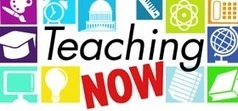"It's really tough for anybody to police their own beliefs." Robert Pianta, University of Virginia
Teachers' expectations about their students' abilities affect classroom interactions in myriad ways that can impact student performance.
How do we get teachers to have the right expectations? Is it possible to change bad expectations?
Can teacher beliefs be changed by giving them new sets of teaching behaviors?
Pianta thinks that to change beliefs, the best thing to do is change behaviors.
- "For the most part, we've tried to convince them that the beliefs they have are wrong," he says. "And we've done most of that convincing using information."
- But Pianta has a different idea of how to go about changing teachers' expectations. He says it's not effective to try to change their thoughts; the key is to train teachers in an entirely new set of behaviors.
"If you want to change a mind, simply talking to it might not be enough."



 Your new post is loading...
Your new post is loading...








